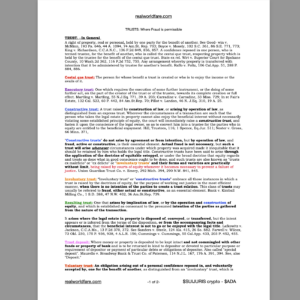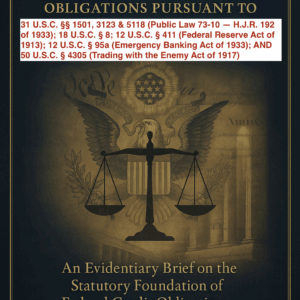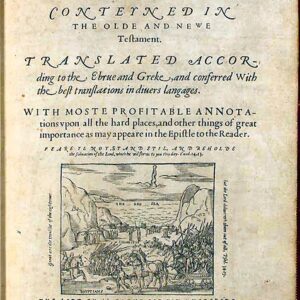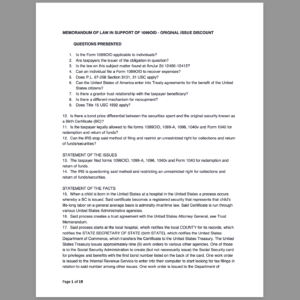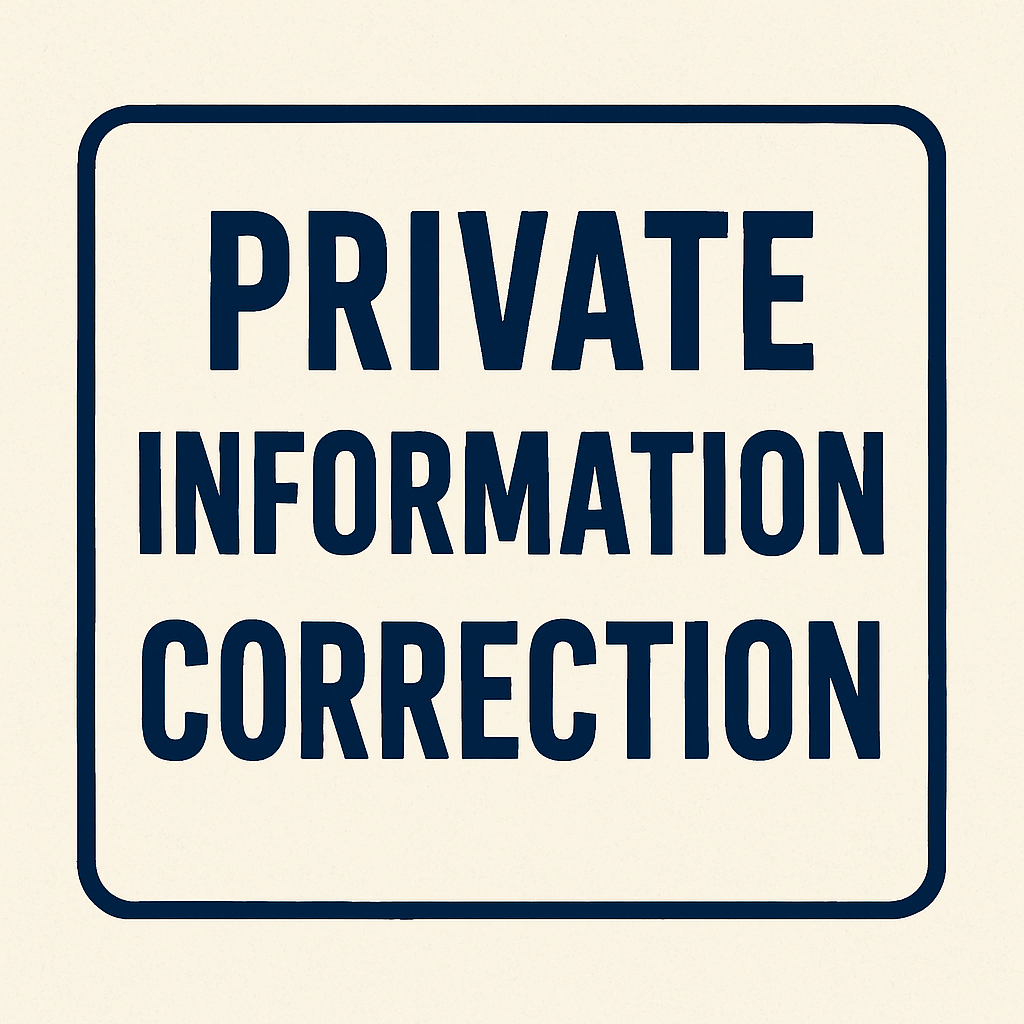The Clearfield Doctrine, established in the Supreme Court case Clearfield Trust Co. v. United States, 318 U.S. 363 (1943), provides a critical lens to view the U.S. government’s role in commerce and contract law. This doctrine reveals that when the government engages in “commercial” transactions, it acts as a private entity and forfeits any claim to sovereign immunity. Its implications ripple through contract law, the Uniform Commercial Code (UCC), and the understanding that everything, factually and legally, is commerce. Everything the Government does is “commercial.” Think about that for a moment…
The Origins and Core of the Clearfield Doctrine
The Clearfield Trust decision arose from a dispute involving a forged check issued by the U.S. government. The Court determined that when the government issues negotiable instruments, such as checks, it descends to the level of a private corporation and is subject to the same commercial laws as any other party. Justice Douglas noted that in these transactions, the government operates within the domain of the law merchant and cannot invoke sovereign immunity.
This doctrine highlights the government’s dual role: as a sovereign authority and as a participant in the commercial realm. The Clearfield Doctrine unequivocally applies when the government acts within the sphere of commerce, whether through issuing monetary instruments or entering contracts.
The UCC and the Codification of Contract Law
The Uniform Commercial Code (UCC) provides the framework for understanding and regulating commercial transactions in the United States. Key provisions of the UCC codify principles of contract law and reinforce the commercial nature of all transactions:
- UCC § 2-206: Offer and Acceptance in Formation of a Contract
This section governs how contracts are formed, emphasizing that an offer to contract invites acceptance in any manner reasonable under the circumstances. The government, when engaging in commercial acts, creates implied contracts through its actions and demands. Whether through issuing licenses, requiring registrations, or imposing fines, these interactions constitute offers and acceptances under UCC principles.
- UCC § 2-202: Final Written Expression
This provision ensures that written contracts are enforceable and cannot be contradicted by prior agreements or oral statements. It reinforces the binding nature of agreements, including those the government enters in commerce.
- Codification of Contract Law (UCC § 1-103)
The UCC explicitly integrates common law principles of equity, good faith, and fair dealing into its framework. It also affirms the foundational role of the law merchant, the body of rules developed through commercial customs, in governing transactions.
- UCC § 3-311 and § 3-603: Discharge and Accord
These sections clarify that obligations can be discharged when valid tender is offered and specify that refusal of such tender results in discharge. In commerce, even the government cannot avoid these principles when obligations are involved.
The Commercial Reality: Everything is Commerce
When considering the totality of the facts, it becomes clear that everything—driver’s licenses, auto registrations, passports, taxes, fines, and fees—operates within the realm of commerce. Each of these government-issued items or requirements involves a contractual interaction governed by commercial law:
Driver’s Licenses and Auto Registrations: These are contracts of adhesion where individuals accept terms imposed by the government to access public roads.
Passports: A contract between the individual and the government, where the individual agrees to abide by specific terms for the privilege of international travel.
Taxes and Fees: Commercial obligations based on the tacit or explicit acceptance of government services or benefits.
Under the Clearfield Doctrine, when the government participates in these activities, it acts as a commercial entity and is bound by the rules of commerce codified in the UCC.
Sovereign Immunity Ends in Commerce
The Clearfield Doctrine confirms that the government cannot claim sovereign immunity when engaging in commerce. It is held to the same legal standards as private entities, including principles of contract law, offer and acceptance, and the discharge of obligations. Refusing tendered payment or ignoring commercial rules results in a breach of contract, which can be challenged under UCC provisions.
The People’s Lack of Knowledge: A Systematic Issue
Despite the power of these legal principles, most individuals lack the knowledge to enforce their rights effectively. This ignorance allows the government to overreach and operate unchecked in its commercial capacity.





